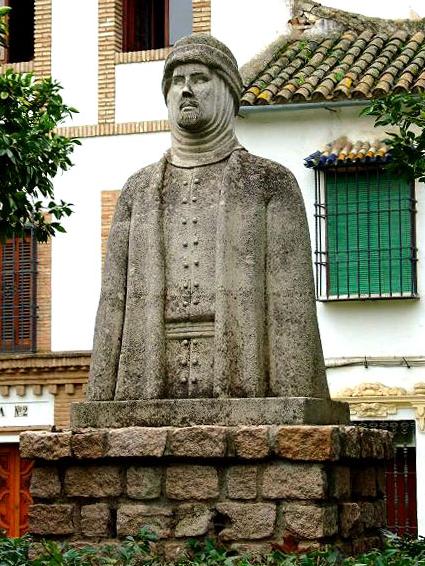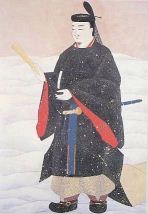|
Fujiwara No Michikane
Fujiwara no Michikane (藤原 道兼; 961 – June 13, 995), the son of Kaneie, was a Japanese nobleman and monk of the Heian period. When his nephew took the throne as Emperor Ichijō in 994, he returned from monastic life and took the government position of ''Udaijin'' (Minister of the Right). The following year, he succeeded his brother Michitaka as imperial regent ('' Kampaku''). Michikane died a week after assuming the regency, and is thus sometimes referred to as ''Nanoka no Kampaku'' (七日の関白), or "the seven-days regent." He was then replaced by his brother Michinaga. The Rusu clan Rusu or RUSU may refer to: People *Rusu clan in Japan *Rusu Masakage, Japanese samurai *Rusu (surname) Places *Rusu River, tributary of Valea lui Manole River in Romania *Pârâul Stâna lui Rusu, tributary of the Pârâul Bradului in Romania ... claimed descent from Michikane. References *Papinot, Edmond (1910). Historical and geographical dictionary of Japan. Tokyo: Librarie ... [...More Info...] [...Related Items...] OR: [Wikipedia] [Google] [Baidu] |
Fujiwara No Kaneie
was a Japanese statesman, courtier and politician during the Heian period.Nussbaum, Louis-Frédéric. (2005). "Fujiwara no Kaneie" in ; Brinkley, Frank ''et al.'' (1915). He also was known as Hōkō-in Daijin and Higashi-sanjō-dono. Career Kaneie served as a minister during the reigns of Emperor En'yū, Emperor Kazan and Emperor Ichijō. After his rival brother Kanemichi's death in 977 he was appointed to Udaijin by his cousin Yoritada who became Kampaku after Kanemichi's death. He and his son Michikane encouraged Emperor Kazan to abdicate to accelerate Kaneie's accession to regent. Kaneie told Kazan that the Imperial Regalia was already held by Ichijo, and hence Kazan should not continue as ruler. Kazan acquiesced to Kaneie's demands, under some pressure, and went to the Gangō-ji monastery in Nara. Kaneie's second son, Michikane, went with Kazan; he intended to also take the tonsure. When they arrived at the monastery, Michikane claimed that he would like to see his paren ... [...More Info...] [...Related Items...] OR: [Wikipedia] [Google] [Baidu] |
Heian Period
The is the last division of classical Japanese history, running from 794 to 1185. It followed the Nara period, beginning when the 50th emperor, Emperor Kanmu, moved the capital of Japan to Heian-kyō (modern Kyoto). means "peace" in Japanese. It is a period in Japanese history when the Chinese influences were in decline and the national culture matured. The Heian period is also considered the peak of the Japanese imperial court and noted for its art, especially poetry and literature. Two types of Japanese script emerged, including katakana, a phonetic script which was abbreviated into hiragana, a cursive alphabet with a unique writing method distinctive to Japan. This gave rise to Japan's famous vernacular literature, with many of its texts written by court women who were not as educated in Chinese compared to their male counterparts. Although the Imperial House of Japan had power on the surface, the real power was in the hands of the Fujiwara clan, a powerful aristocratic f ... [...More Info...] [...Related Items...] OR: [Wikipedia] [Google] [Baidu] |
Emperor Ichijō
was the 66th emperor of Japan,Imperial Household Agency (''Kunaichō'') 一条天皇 (66)/ref> according to the traditional order of succession. Ichijō's reign spanned the years from 986 to 1011. Biography Before he ascended to the Chrysanthemum Throne, his personal name (''imina'') was Kanehito''-shinnō'' (懐仁). Kanehito''-shinnō'' was the first son of Emperor En'yū and Fujiwara no Senshi, a daughter of Fujiwara no Kaneie. Since there are no documented siblings, it is supposed that he was an only child. Ichijō had five Empresses or Imperial consorts and five Imperial sons and daughters. Events of Ichijō's life His reign coincided with the culmination of Heian period culture and the apex of the power of the Fujiwara clan. He ascended to the throne after a period of political instability that began within the Fujiwara clan after they successfully eliminated the Minamoto clan as a political rival. The internal power struggle that ensued within the Fujiwara saw the untime ... [...More Info...] [...Related Items...] OR: [Wikipedia] [Google] [Baidu] |
Udaijin
was a government position in Japan in the late Nara and Heian periods. The position was consolidated in the Taihō Code of 702. The Asuka Kiyomihara Code of 689 marks the initial appearance of the ''udaijin'' in the context of a central administrative body called the ''Daijō-kan'' (Council of State). This early Daijō-kan was composed of the three ministers—the ''daijō-daijin'' (Chancellor), the '' sadaijin'' (Minister of the Left) and the ''udaijin''.Hall, John Whitney ''et al.'' (1993)''The Cambridge History of Japan,'' p. 232./ref> The ''udaijin'' was the Junior Minister of State, overseeing all branches of the ''Daijō-kan''. He would be the deputy of the '' sadaijin''.''Shin-meikai-kokugo-jiten'', Sanseido Co., Ltd., Tokyo 1974 The post of ''udaijin'', along with the rest of the ''Daijō-kan'' structure, gradually lost power over the 10th and 11th centuries, as the Fujiwara came to dominate politics more and more. The system was essentially powerless by the end of the 12 ... [...More Info...] [...Related Items...] OR: [Wikipedia] [Google] [Baidu] |
Fujiwara No Michitaka
, the first son of Kaneie, was a ''Kugyō'' (Japanese noble) of the Heian period. He served as regent ('' Sesshō'') for the Emperor Ichijō, and later as '' Kampaku''. Ichijō married Michitaka's daughter Teishi (Sadako), thus continuing the close ties between the Imperial family and the Fujiwara. Michitaka is sometimes referred to as ''Nijō Kampaku'' (二条関白) or ''Naka-no-Kampaku'' (中関白). Career * Kanna 2 (986): Chūnagon (中納言) * Kanna 2 (986): Gon-no-Dainagon (権大納言) * Eien 3, on the 23rd day of the 2nd month (989): Naidaijin (内大臣) * Shōryaku 1, on the 8th day of the 5th month (990): Kampaku (関白) for Emperor Ichijō * Shōryaku 1, on the 26th day of the 5th month (990): Sesshō (摂政) for Emperor Ichijō * Shōryaku 2, on the 23rd day of the 7th month (991): retire from Naidaijin * Shōryaku 4, on the 22nd day of the 4th month (993): Kampaku for the Emperor Ichijō * Chōtoku 1, on the 3rd day of the 4th month (995): retire from Kampak ... [...More Info...] [...Related Items...] OR: [Wikipedia] [Google] [Baidu] |
Fujiwara No Michinaga
was a Japanese statesman. The Fujiwara clan's control over Japan and its politics reached its zenith under his leadership. Early life Michinaga was born in Kyōto, the son of Kaneiye. Kaneiye had become Regent in 986, holding the position until the end of his life in 990. Due to the hereditary principle of the Fujiwara Regents, Michinaga was now in line to become Regent after his brothers, Michitaka and Michikane. Career Struggle with Korechika Michitaka was regent from 990 until 995, when he died. Michikane then succeeded him, famously ruling as Regent for only seven days, before he too died of disease. With his two elder brothers dead, Michinaga then struggled with Fujiwara no Korechika, Michitaka's eldest son and the successor he had named. Korechika was more popular at court than Michinaga, being a favourite of Empress Teishi and well-liked by the reigning Emperor Ichijō, and held multiple prestigious positions - he had been made Naidaijin the previous year, and Sangi ... [...More Info...] [...Related Items...] OR: [Wikipedia] [Google] [Baidu] |
Rusu Clan
Rusu or RUSU may refer to: People *Rusu clan in Japan *Rusu Masakage, Japanese samurai *Rusu (surname) Places *Rusu River, tributary of Valea lui Manole River in Romania *Pârâul Stâna lui Rusu, tributary of the Pârâul Bradului in Romania *Rusu de Jos, town in Bistriţa-Năsăud County, Romania *Rusu de Sus, commune in Bistriţa-Năsăud County, Romania Organizations *RUSU, acronym for Reading University Students' Union *RUSU, acronym for RMIT University Student Union See also *Rus (surname) *Rusca (other) *Ruseni (other) *Rusești (other) Ruseşti may refer to several villages in Romania: * Ruseşti, a village in Albac Commune, Alba County * Ruseşti, a village in Bulzeștii de Sus Commune, Hunedoara County * Ruseştii Noi, a commune in Ialoveni district, Moldova See also *Rus ... * Rusciori (other) {{Disambig, geo, surname ... [...More Info...] [...Related Items...] OR: [Wikipedia] [Google] [Baidu] |
961 Births
Year 961 ( CMLXI) was a common year starting on Tuesday (link will display the full calendar) of the Julian calendar. Events By place Byzantine Empire * March 6 – Siege of Chandax: Byzantine forces under Nikephoros II Phokas capture and pillage Chandax after an 8-month siege. Nikephoros massacres the population without mercy and carries them off into slavery, returning to Constantinople with Emir Abd al-Aziz ibn Shu'ayb and his family as prisoners. The island Emirate of Crete is converted into a Byzantine theme and the remaining Muslims are converted to Christianity. Europe * May 26 – Otto I, Holy Roman Emperor elects his 6-year-old son Otto II as heir apparent and co-ruler at the Imperial Diet in Worms. He is crowned at Aachen, and placed under the tutelage of his grandmother Matilda and his half-brother William of Mainz. Otto's own brother Bruno I is charged with the provisional government of Lorraine again. * Summer – Otto I leads an expe ... [...More Info...] [...Related Items...] OR: [Wikipedia] [Google] [Baidu] |
995 Deaths
Year 995 ( CMXCV) was a common year starting on Tuesday (link will display the full calendar) of the Julian calendar. Events By place Japan * 17 May - Fujiwara no Michitaka (imperial regent) dies. * 3 June: Fujiwara no Michikane gains power and becomes Regent. * 10 June: Fujiwara no Michikane dies. * 30 August - Retainers of Takaie clash with retainers of Michinaga, on the main street of Kyoto. * 4 September - Michinaga’s escort, Hata no Hisatada, is killed by Takaie’s followers. * 15 October - Michinaga becomes Chief of the Fujiwara Clan. Byzantine Empire * Arab–Byzantine War: Emperor Basil II launches a counter-campaign against the Fatimid Caliphate. He leads a Byzantine expeditionary army (13,000 men) to aid the Hamdanid emir Sa'id al-Dawla, and crosses Asia Minor in only sixteen days. Basil lifts the siege of Aleppo, and takes over the Orontes Valley. He incorporates Syria into the Byzantine Empire (including the larger city of Antioch) which is ... [...More Info...] [...Related Items...] OR: [Wikipedia] [Google] [Baidu] |
Fujiwara Clan
was a powerful family of imperial regents in Japan, descending from the Nakatomi clan and, as legend held, through them their ancestral god Ame-no-Koyane. The Fujiwara prospered since the ancient times and dominated the imperial court until the Meiji Restoration in 1868. They held the title of Ason. The abbreviated form is . The 8th century clan history ''Tōshi Kaden'' (藤氏家伝) states the following at the biography of the clan's patriarch, Fujiwara no Kamatari (614–669): "Kamatari, the Inner Palace Minister who was also called ‘Chūrō'',''’ was a man of the Takechi district of Yamato Province. His forebears descended from Ame no Koyane no Mikoto; for generations they had administered the rites for Heaven and Earth, harmonizing the space between men and the gods. Therefore, it was ordered their clan was to be called Ōnakatomi" The clan originated when the founder, Nakatomi no Kamatari (614–669) of the Nakatomi clan, was rewarded by Emperor Tenji with the honori ... [...More Info...] [...Related Items...] OR: [Wikipedia] [Google] [Baidu] |



.jpg)
